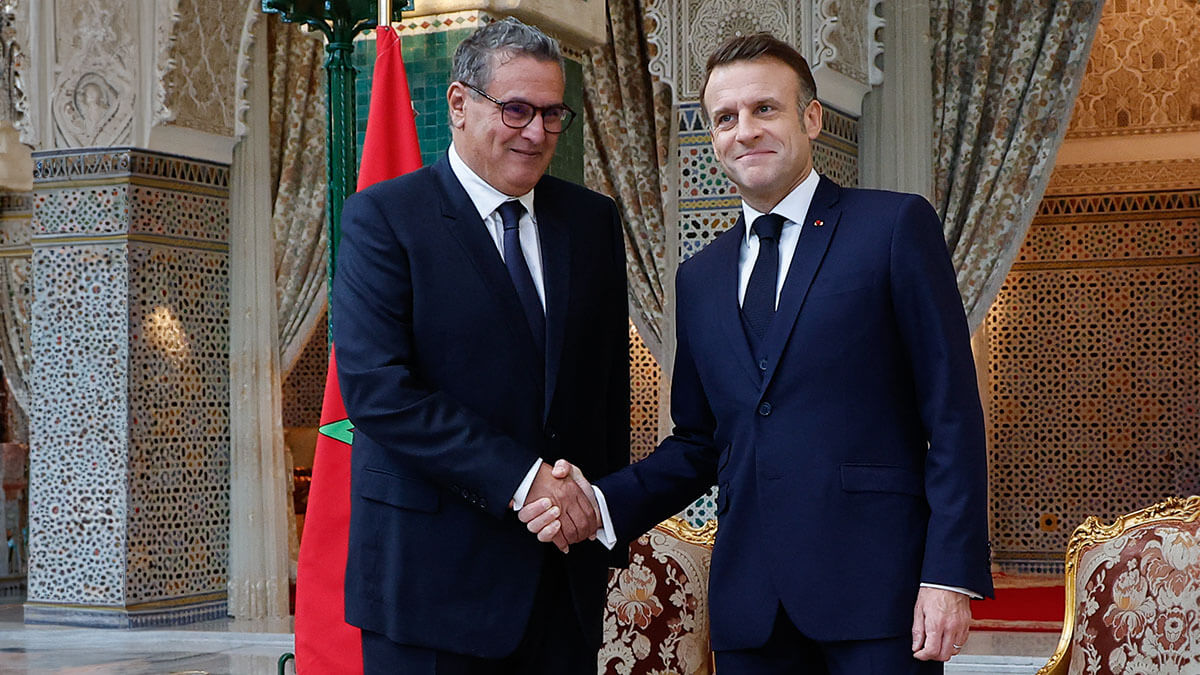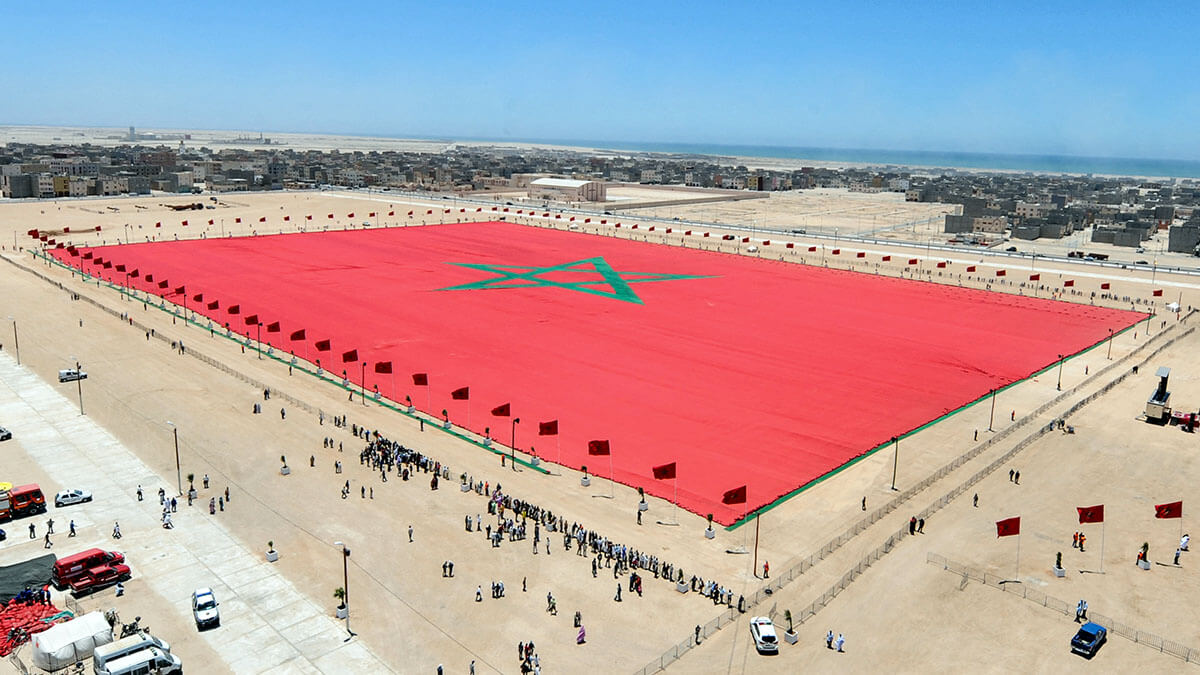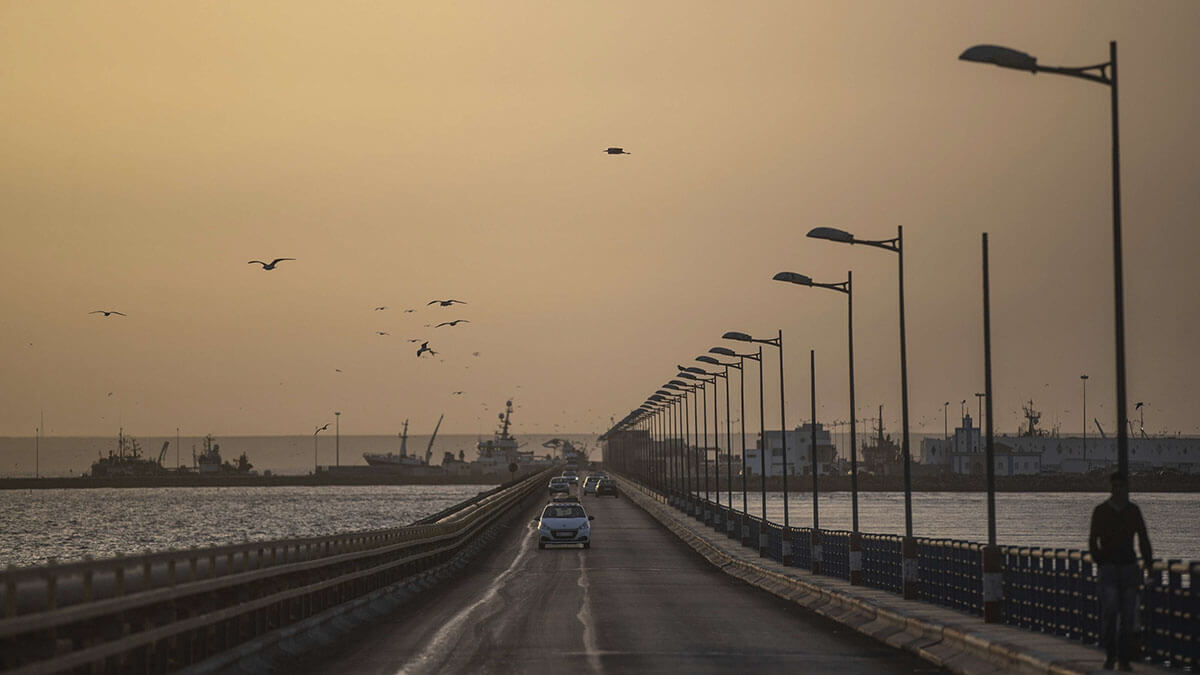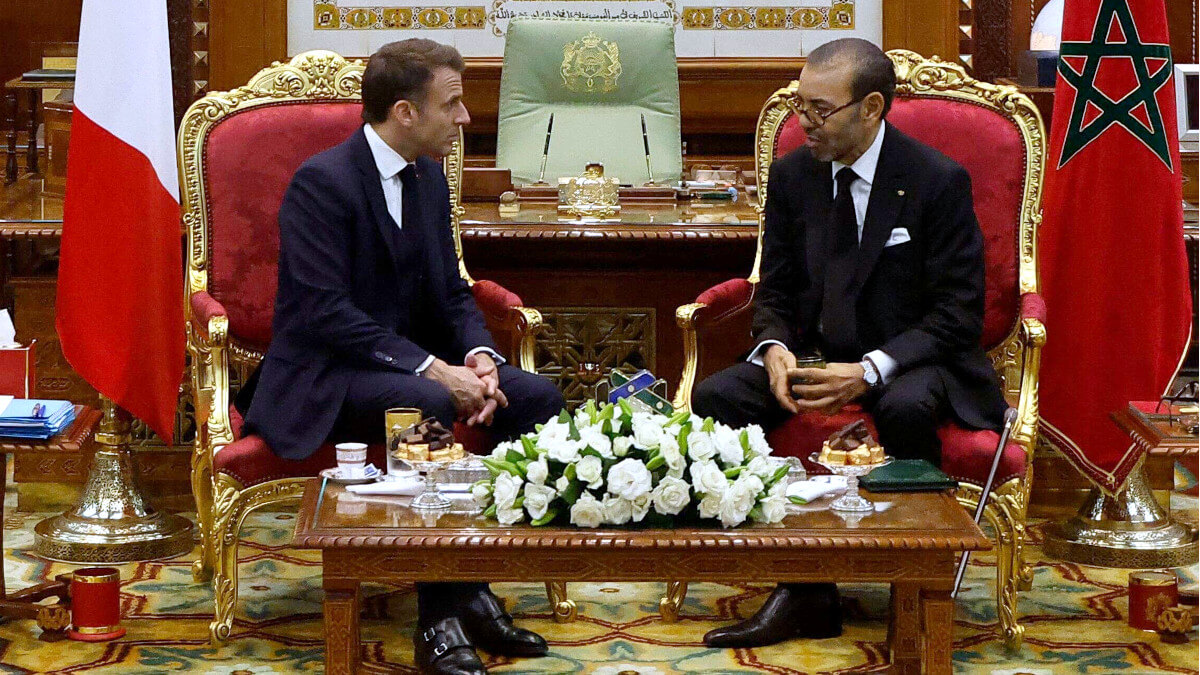The diplomat and expert international analyst Gustavo de Arístegui analysed the reception in Rabat for the President of France, Emmanuel Macron, and the 22 agreements signed between Morocco and France on the programme ‘De cara al mundo’ on Onda Madrid. He also discussed Spain’s relations with the Moroccan kingdom.
Gustavo, reunion, and reconciliation in style. What assessment can we make of everything that happened in Rabat? Mohammed VI offered a crowd bath on his arrival to Mr Emmanuel Macron, President of France, in a convertible Mercedes with thousands of people in the streets.
A little history of where we come from is needed to understand it all. In Emmanuel Macron’s first term in office, what has happened to all French presidents has happened to him. France is said to be a democracy that is an elective monarchy, since the office carries with it a great deal of power. He is not a figurehead president. He is a president with full executive powers, even if he is called prime minister. It is even said that there are fewer checks and balances than in American democracy.
Macron always tends to think that the Francophonie still exists with the strength that, unfortunately, it does not have. And instead of making efforts to maintain relations as equals, respecting the sovereignty, independence and personality of each of the French-speaking states, and especially, for example, those in sub-Saharan Africa, where France is losing influence hand over fist, he tried a very paternalistic approach to Maghreb politics and succeeded in deeply angering both the Algerians and the Moroccans.
The cooling of relations was absolute. So much so that French companies began to find it difficult to obtain contracts and there was a feeling of deep irritation in public opinion, even in sectors that are not particularly favourable to the current government, the government of Prime Minister Aziz Akhannouch and the opposition parties.
Macron’s speech, in which he addressed Moroccans directly as if he were Morocco’s head of state after the terrible Atlas earthquake, was said to be one of the lowest moments in bilateral relations since Morocco gained independence.
It is important to underline that France has been trying its best to get closer to Morocco, but at the same time it was intensifying a lot of relations with Algeria. We know it is an exceedingly difficult balance. There were mutual state visits between France and Algeria and that also ended up freezing relations further.
It is important to note that, after many, many attempts on the part of France, this has only come in the second mandate, in the mandate in which Macron obviously has no re-election and in which he obviously must leave some kind of legacy, because of the importance of the North African country. Let us not forget that it is one of the most influential communities in France, not only because of the number of Moroccans, there are undoubtedly more Algerians, but also because of their quality.
Many French people of Moroccan origin hold positions of enormous importance. In François Hollande’s government alone, there were three Moroccan women ministers, including two who were born in Morocco. The most important comedians, engineers, company bosses, lawyers, journalists, teachers, graduates of the top schools, number one in their class, in short, the list is endless.

Moroccan Prime Minister Aziz Akhannouch greets French President Emmanuel Macron before their meeting in Rabat on 29 October 2024 – AFP/ LUDOVIC MARIN
Do you think that after what has been happening in Rabat over the last few days, France can make a move in the UN Security Council to resolve the Sahara dispute? The French Foreign Ministry has already adopted the map of Morocco in its entirety, including the Saharan territories. Do you think there could be pressure from Algeria, the Polisario Front and Russia for the UN Security Council to take a crucial step towards a solution based on autonomy for the Sahara under Moroccan sovereignty?
I do not think so, frankly. Now, the veto power of certain countries will not allow a breakthrough in the UN Security Council. However, let us bear in mind that the weight of France’s change of position is not just any old thing. It has maintained a pro-Moroccan rather than a pro-Polish position for many, many years, but in a nuanced way. In the current response, which is somewhat the general trend in the most important countries in the world, the United States, Germany, Italy, Holland, Belgium, and Spain, it is going to take the form of a change in the French position or, shall we say, the consolidation of the previous nuanced position.
I would like to emphasise something that has not been said enough, and that is the recognition of the Sahara by a country that is not very favourable to this type of declaration, which is the case of Estonia, which is a country that, like all the Baltic countries, feels that self-determination was the central element of its independence from the Soviet Union and that the Russian giant is its main adversary, rival, potential enemy, and that, despite this, despite the Baltic countries’ traditional support for separatist movements around the world, their recognition of the Moroccanness of the Sahara is far more important than the country’s weight.

Moroccan flag in the city of Dakhla – PHOTO/AIDA
And, furthermore, the proof of the pudding is in the eating because, in addition to this exceptional renewed partnership, 22 cooperation agreements have been signed, with French credits, by the way, in key sectors of Moroccan development and modernisation, and many of these investments are going to go to the Sahara, to Dakhla, to Laayoune? There is still no talk of opening a consulate, as other countries have done, but there the economic issue also supports everything political, right?
Indeed, the 22 agreements are especially important, rarely have so many been signed. We know that during state visits, agreements are signed that take years to materialise, but many are already frozen beforehand or in sectors of mutual interest for both countries. Let us not forget that the Moroccan high-speed train, which runs from Tangiers to Casablanca, is of French design and execution, both the tracks and the rolling stock, and that at the moment the extension of this high-speed train is going to be from Casablanca to Marrakech and from Marrakech to Agadir, that is to say, the entire northern part of the country.
Secondly, two mega-ports are being built in which Spanish companies could have participated but which, incomprehensibly, none of them have shown any interest in the projects. One is that of Nador, which will surely become the most important oil port in North Africa, even though Morocco does not produce oil; and secondly, the superport of Dakhla, which is going to be one of the most important in West Africa.
As a result, these 22 agreements will put France back at the centre of Morocco’s economic and financial investment scene, which until now has been the case with Spain. Spain had snatched France’s first place as a trading and investment partner some time ago. This Spanish takeover will not go down well in France, and I fear that these agreements will soon leave us in second place.

A view of the road leading to the fishing port of Dakhla, Western Sahara – AP/MOSAAB ELSHAMY
The problem here is that the government is unable or unwilling to invest as much in Morocco as it should, since it is the strategic partner that the government claims it is. Of course, it has five ministers who are anti-Moroccan, who are the ministers of Sumar, of the extreme left, and who at any moment could put the stability of the government in crisis. In this sense, Spain has a problem when it comes to completing or betting on, or, if you like, profiting from, which would be the word, its relations with Morocco.
Moreover, they are militantly anti-Moroccan and let us not forget that they belong to political groups in the European Parliament that are particularly belligerent against Morocco they are practising a kind of selective political racism, if I may use the expression loosely.
They are always criticising European paternalism towards developing countries, middle-income countries such as Morocco, especially those which are neighbours, those which profess a different religion and culture or those which are obviously of a different ethnic and human origin from Europe, and yet, curiously, in this, they apply all these restrictive criteria and a selective political racism, they apply all these restrictive and somewhat xenophobic criteria to Morocco in a selective way, that is to say, in the case of the Spanish extreme left and even of part of the Spanish left, there is no real feeling of universality or of respect without any ambiguity for all races, sex or religion, but it is selective depending on who you are.
The same is true in certain African countries. We do not see the far left in the European Parliament, the Spanish far left, worrying about human rights problems in China, for example, or in Russia or other countries in Asia or the Middle East. However, they are concerned about human rights problems in countries that no longer have them, such as Morocco, or they do not criticise, for example, the problems that there are now in Tunisia, the absolute chaos in Libya or, of course, in Algeria.
Women in Iran is a particularly serious matter, but it is even more serious that the very important role of women in the Middle East is not being asserted, that women’s rights in Iran are not being defended, and that homosexuals, who are savagely executed in public on cranes almost every week in the Islamic Republic of Iran, are not being defended either.
